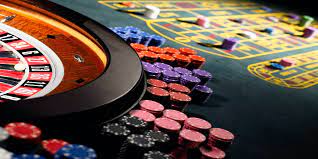
Casinos, often synonymous with glamour, excitement, and the thrill of chance, koplo77 have long held a special place in the world of entertainment. From the dazzling lights of the Las Vegas Strip to the opulent casinos of Monte Carlo, these establishments have become iconic symbols of leisure and risk. But beyond the glittering façade, there is a complex world that combines entertainment, psychology, and mathematics, creating an environment where fortunes can be made or lost in the blink of an eye.
The Origin of Casinos:
The history of casinos can be traced back to ancient civilizations, where various forms of gambling were prevalent. However, the modern casino as we know it today has its roots in 17th-century Italy. The word “casino” itself is derived from the Italian word for “little house,” reflecting the early origins of these establishments as small, private gathering places for socializing and games of chance.
Evolution of Casinos:
Over the centuries, casinos evolved from exclusive clubs to widespread entertainment hubs. The introduction of slot machines in the late 19th century marked a significant turning point, making gambling more accessible to the general public. The mid-20th century saw the rise of iconic destinations like Las Vegas, which transformed into the gambling capital of the world, boasting grand hotels, elaborate shows, and an electric atmosphere.
The Psychology of Casinos:
Casinos are meticulously designed to create an immersive and captivating experience for visitors. The use of bright lights, stimulating sounds, and intricate architecture aims to keep patrons engaged and entertained. The layout of games is strategically planned to encourage exploration and keep players on the gaming floor. The psychology behind casino design is intended to create an environment where time seems to stand still, fostering a sense of excitement and anticipation.